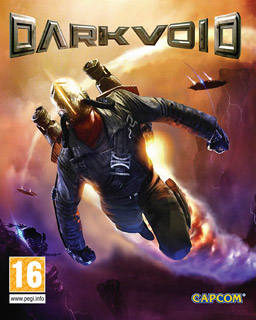
Following on from the spectacular non-event that was New Moon – which, as far as I can remember, just featured Kristen Stewert sobbing in the corner for a couple of hours while Taylor Lautner injected his biceps with minced beef crying “Do you love me now” – the latest instalment in the bafflingly popular Twilight series, Eclipse, reared its chiselled, sparkling and forever sulking head in cinemas a few weeks ago, and with me having this weird, almost masochistic urge to toddle along and sit through two hours of this emotionally undead (geddit?) garbage every time it comes out, I just had to get in on the fun.
It’s some time after the “surprise” proposal ending of New Moon – at least I’m assuming it was a surprise ending because of the way the girls sitting in front of me gasped, but it’s just as possible they’d spent the film building up to a climax and the close up of Robert Pattinson tipped them over the edge – and everything is pretty much where we left it. Bella and Edward aren’t married, since Bella won’t marry a vampire (common sense prevails?) until he turns her into a vampire (maybe not then), but that hasn’t stopped Edward popping the question over and over again, although fortunately he stops just short of a full-on Mrs Doyle impersonation. Jacob is still hanging around too, probably shirtless, and is still a bit miffed about whatever happened in the last film. So the whole love story thing hasn’t gotten any more interesting than it already wasn’t, but at least now there’s a decent sub-plot with some real vampires kicking off down the road.
One of the underdeveloped “proper” vampires Victoria (the ginger one from the first film), and she’s got a bit of a grudge against Bella; their respective vampire boyfriends had a bit of a scrap and Victoria’s ended up a bit dead. So, after spending the last film plotting somewhere, she’s now building an army of unborn vampires to help get her revenge. Which almost sounds cool, but as it turns out there are six children in the army and they’re led by someone called Riley who looks like he fell out of a failed boy band. Still, as non-threatening as the army is, they do help drive Eclipse forward at a decent pace, something that New Moon totally lacked.
With the vampiric Mickey Mouse Club fast approaching, the Forks vampire and werewolf clans are forced to come together to protect Bella. Given the long, bloody history between them you’d be forgiven for expecting a tense couple of scenes, but everything is a bit unintentionally hilarious. The Cullen clan are quite camp at the best of times, so when one of them starts strutting around in front of the bemused looking werewolves pretending to be a drill instructor it’s a little difficult to keep a straight face. On the plus side the resulting action sequences aren’t half bad; they are a bit too much like those ridiculously homo-erotic Olympic events where men is testes-smothering leotards flip around on a mat, but there’s a surprisingly satisfying amount of neck snapping going on. So there’s half a thumbs-up for that.
Probably the most interesting part of Eclipse, though, doesn’t really have anything to do with the actual plot, or either of the other films’ plots for that matter. Until now the focus has very much been on Bella, Edward and occasionally Jacob, none of whom are particularly deep, complicated or even interesting characters, so it’s a refreshing change when some of the minor characters grasp the limelight for a couple of minutes and reveal their much darker pasts. There’s not always much relevance in it – one of Edwards sisters barely has a line for most of the film but still gets a few minutes of flashbacks detailing how she killed some guy once – but it gives some of the characters a depth that so far the series has been without.
It’s a shame, then, that these characters are inevitably pushed to the side when Bella swans (ba dum) her way onto the screen with Edward and Jacob in tow. In fairness they do seem to have developed a little more personality since the last romantic tug-of-war and even go as far as to force a smile and crack a joke every now and then, but for the most part they’re still painfully dull characters, which is only emphasised by Stewert, Pattinson and Lautner’s perpetually uninterested performances. But I guess it’s not all bad; Taylor clearly hasn’t let up on the fitness regime in-between filming. You’d have to be as flaccid as boiled celery not to feel a little twinge in your drawers when you look at him, from the neck down at least.
All things considered Eclipse, while still lumped with the same flaws of the previous films, is still the high point of the series so far. The action scenes are rather stylish, there’s a willing self-mocking that I’ve carefully avoided mentioning because it’s not possible to poke fun at, and the pacing is, er, existent. Whether it actually qualifies as a half decent film is still debatable; unless you’re a thirteen year old girl in that weird transitional phase where you’ve started playing horsey on the arm of the living room sofa. Then it’s awesome.
2/5: The best instalment so far, but the series’ flaws show no signs of fading. There’s a glimmer of promise in the Twilight universe, but so long as it’s overshadowed by the eternally predictable romantic mush that’s all it will ever be.
Can someone buy the flabby members of the Wolf Pack shirts of the next film? Or at very least give them some Creatine. Their appearance next to Taylor makes me feel genuinely sad for them.












